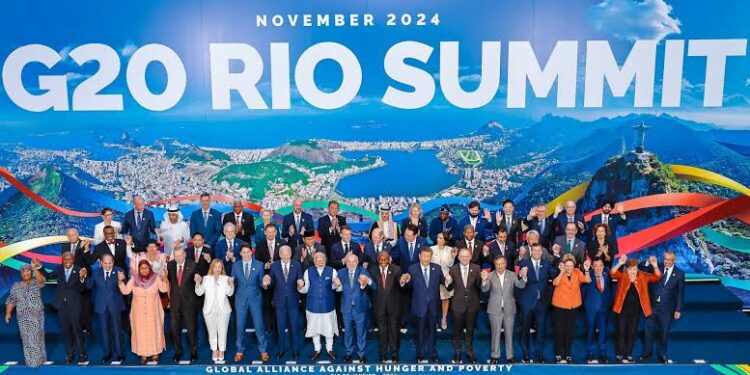The G20 Summit 2024, held in Rio de Janeiro on November 18-19, marked a significant moment for addressing global challenges, particularly those affecting the Global South. Under Brazil’s presidency, the summit focused on inclusive development, climate action, and reforming global governance. Here are the major highlights:
Focus on Global South and Poverty Reduction
Brazilian President Luiz Inácio Lula da Silva emphasized addressing poverty and hunger globally. A new ‘Alliance Against Hunger’ was launched, with 82 countries signing on to tackle food insecurity. This initiative aims to halve hunger for half a billion people by 2030, uniting nations in funding and sharing effective strategies.
Climate Action: An Unfulfilled Promise
Despite high expectations, the summit made limited progress on climate commitments. While leaders acknowledged the need for scaling climate finance from billions to trillions, they failed to detail actionable steps. The absence of concrete agreements mirrored broader challenges in uniting global efforts against climate change.
Ukraine War: Calls for Peace Without Consensus
The ongoing war in Ukraine remained central to discussions. The G20 welcomed peace initiatives but avoided directly condemning Russia, reflecting internal divisions. Ukrainian President Volodymyr Zelenskyy criticized the G20 for its lack of a strong strategy, while calls for peace talks, led by China and Brazil, underscored the summit’s complex dynamics.
Middle East Conflicts: Ceasefire Advocacy
Leaders urged for ceasefires in Gaza and Lebanon, advocating for peace in these volatile regions. Support was voiced for UN resolutions proposing ceasefires in exchange for hostages’ release in Gaza and ensuring safe civilian return along the Blue Line in Lebanon.
Taxing Ultra-Wealthy Individuals
One of the summit’s major breakthroughs was an agreement to tax ultra-wealthy individuals, aiming to address global inequality. Brazilian economists labeled this move historic, although concerns about respecting tax sovereignty and combating avoidance were raised. This marked a victory for Lula, who prioritized wealth redistribution during Brazil’s G20 presidency.
Geopolitical Reform and Global Governance
The G20 reiterated its call for United Nations Security Council reform to make global governance more inclusive. This demand aligns with growing calls from the Global South for a more equitable international system.
What Lies Ahead?
As Brazil handed over the G20 presidency to South Africa, the summit raised critical questions about the future of multilateralism. With a shifting geopolitical landscape, can the G20 sustain its relevance and deliver on its commitments in an increasingly polarized world?
Related Stories:
G20 Summit Brazil 2024: Key Highlights from Day 2
What is G20? Why it’s Important and what is its Global Role?
















